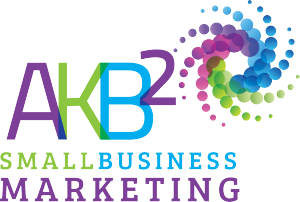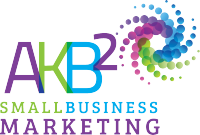Chatbots For Business Owners and Entrepreneurs
With the rise of AI and technologies like ChatGPT, more business owners and entrepreneurs are paying attention to chatbots than ever before. The overwhelming interest in these tools stems from their potential to revolutionize customer interactions and streamline business processes.
If you’ve ever found yourself thinking, “I need a chatbot for dummies guide,” you’re not alone. Many entrepreneurs feel overwhelmed by the jargon and technicalities. This blog will demystify chatbots and show you how they can be a game-changer for your business.
What is a Chatbot?

Chatbots are not a new concept. They have been around for decades, evolving significantly over time. The first known chatbot, ELIZA, was developed in the 1960s by Joseph Weizenbaum at MIT.
ELIZA simulated a conversation with a psychotherapist, using pattern matching and substitution methodology. Since then, chatbots have come a long way, integrating advanced artificial intelligence to provide more sophisticated interactions.
Today, think of a chatbot like a digital concierge for your business, designed to simulate human conversation.
There are two main types: rule-based chatbots, which follow predefined rules and AI-powered chatbots, which use artificial intelligence to understand and respond to user queries.
For example, imagine a virtual assistant who can answer frequently asked questions, guide customers through your website, and even help them make purchases—all without needing a coffee break!
Why Chatbots are Essential for Businesses
Chatbots offer numerous benefits that make them invaluable for businesses:
- Customer Service: Chatbots can provide instant responses to customer inquiries, eliminating wait times and enhancing customer satisfaction. Imagine having a team of receptionists available 24/7/365, ready to assist customers whenever they need it.
- Lead Generation: By engaging visitors on your website or social media, chatbots can qualify leads and direct them to the appropriate sales channels. It’s like having a skilled salesperson who knows exactly which products or services will interest a visitor.
- Marketing and Engagement: Chatbots can be used to send personalized messages, offer special promotions, deliver lead magnets, register attendees for webinars and even conduct surveys. They’re like a friendly salesperson who always knows what your customers want.

Popular Chatbot Platforms and Resources
Several platforms can help you get started with chatbots, such as ManyChat, Chatfuel, Drift, Dialogflow among others.
Think of these platforms as different tools in a toolbox—each designed to handle specific tasks, whether it’s building a subscriber list or providing customer support.
Using Chatbots on Instagram and Facebook
Instagram and Facebook are prime platforms for deploying chatbots due to their extensive user base and engagement potential.
For instance, Instagram chatbots can help coaches and consultants deliver lead magnets instantly and build subscriber lists.
{I use an Instagram chatbot to offer a free guide instantly to anyone who subscribes)
This not only provides immediate value to the subscriber but also helps in building a robust subscriber list that can be nurtured over time.
Messenger chatbots, similarly, can engage users with personalized messages, guide them through purchasing processes, customer service queries and much more.
The integration of chatbots with these social media platforms allows businesses to reach customers where they are already spending time, making interactions more natural and engaging.
Getting Started with Chatbots
Starting with chatbots can be straightforward. Here’s a simple guide:
- Choose a Platform: Select a chatbot platform that suits your business needs. ManyChat is a great starting point due to its intuitive design.
- Define Your Goals: Determine what you want your chatbot to achieve—whether it’s answering FAQs, generating leads or providing support.
- Build Your Chatbot: Use templates and customization options to create your chatbot. Focus on making interactions engaging and informative.
- Test and Launch: Before going live, thoroughly test your chatbot to ensure it provides a good user experience.
5. Continuous Improvement: Automation technology is continually evolving. Regularly review your chatbot’s performance, check for broken flows, and make necessary adjustments.
Continuous improvement ensures your chatbot remains effective and can adapt to new advancements. Think of it as maintaining a high-performance vehicle—regular check-ups and updates keep it running smoothly
Best Practices for Using Chatbots
To make the most of your chatbot, consider these best practices:
- Personalization: Make interactions feel personal by using the user’s name and tailoring responses based on their behavior.
- Seamless Handoff: Ensure that your chatbot can smoothly transition to a human agent when needed, especially for complex inquiries.
- Monitoring and Optimization: Regularly review your chatbot’s performance and update its responses as needed. Think of it as fine-tuning a machine to ensure optimal performance.
Case Studies and Success Stories
Real-world examples show the potential of chatbots. For instance, a healthcare professional can use a chatbot to provide patients with tips on maintaining a healthy lifestyle and booking appointments.
An online retailer might use a chatbot to send personalized thank-you messages and offer discounts to encourage repeat purchases.
A business coach could use a chatbot to deliver content about business planning and offer consultations at the end of a content sequence.
These examples demonstrate how chatbots can be tailored to various industries, much like customizing a tool to fit specific needs.
These examples demonstrate how chatbots can be tailored to various industries, much like customizing a tool to fit specific needs.

Common Challenges and How to Overcome Them
While chatbots offer many benefits, they can also present challenges:
- Technical Issues: Choose a reliable platform and utilize available support resources to troubleshoot any issues.
- Balancing Automation and Human Touch: While chatbots are great for handling routine tasks, make sure there’s always an option for users to interact with a human when necessary.
Think of these challenges like learning to use a new tool—initial difficulties are normal, but with practice, you can master it.
Future Trends in Chatbot Technology
The future of chatbots looks bright, with advancements in generative AI making them more intuitive and capable. We can expect to see greater integration with other technologies, such as voice assistants and CRM systems, offering even more value to businesses.

Envision the future of chatbots like the evolution of smartphones—continuous improvements that make them indispensable in everyday business operations.
It’s Time To Pay Attention
Chatbots are powerful tools that can transform how businesses interact with customers. From providing 24/7/365 customer support to engaging users in personalized marketing campaigns, the possibilities are endless.
For entrepreneurs and business owners, now is the perfect time to explore chatbots and see how they can enhance your operations. Start small, experiment, and watch as chatbots help you scale and grow your business.
Ready to see how chatbots can transform your business? Reach out today for a demo and discover the many ways they can streamline your workflow and engage your customers.
Let’s explore the possibilities together!
About Dorothy Vernon-Brown
Dorothy Vernon-Brown is the author of the mini-book: The Follow-up Formula: The Ultimate Guide To Converting Prospects Into High Paying Clients (Without Spending More On Marketing) and a marketing automation strategist, known for her expertise in lead generation, business growth and scaling.
More than just a strategist, Dorothy delivers tangible, profitable results.
Dorothy’s expertise has been the driving force behind numerous clients achieving great outcomes. This includes a local client who, with a modest email list, realized a $20K revenue surge in just 14 days, and a local charity that saw a 40% increase in net profits through innovative online campaigns.
Beyond her professional pursuits, Dorothy dedicates her time to a charity she co-founded, reflecting her commitment to giving back.
Her significant contributions to the Black community in Canada have earned her the esteemed title of Woman of Honour.



